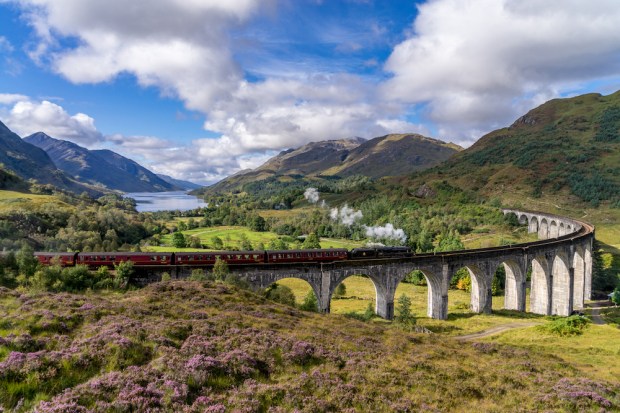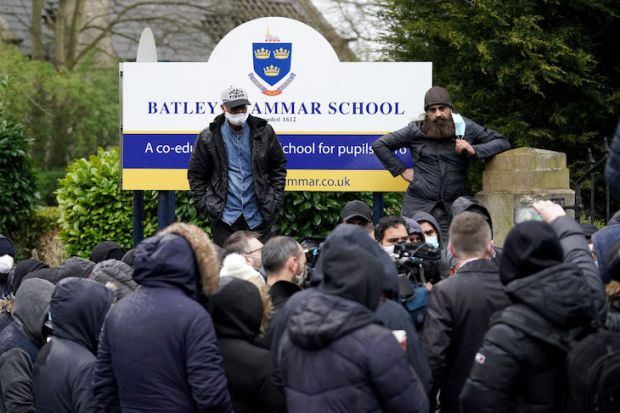When people such as Prince Harry say they want us to face up to the past, do they really mean it? It’s a demanding task, needing patience, humility, and effort. Some people spend their whole lives on it. It means understanding people from very different cultures with very different values. It means acquiring some feeling for the hard physical conditions they had to face, their insecurity, their limited resources, the always slow and often imperfect spread of information, and the frequent illnesses and pains they took for granted. It means gaining some insight into their beliefs about the universe, their understanding of their own history, their fears about their present, and their expectations of the future. Facing up to the past should make us less sure of our own superiority. Is Prince Harry – who said, when talking about the Commonwealth, that we need to ‘look at the past’ to move forward – prepared for that?
Once in a remote part of Queensland, my hosts showed me the unpublished diary of the family who in the 1880s had set up the cattle station they owned. It was a pathetic record of illnesses, of stock running away (in pre-barbed-wire days), of loneliness, of harsh surroundings, of near despair after high hopes, and of early death.
Today, many would condemn those people as racist land-stealers, as genocidal displacers of aboriginal people. Is that really what they were? Is that their whole story? Have we the right to pass judgment from our privileged position?
Unless we regard ourselves as the unique pinnacle of human achievement (and I have an uncomfortable feeling that some people do), the answer is no. There are of course things in the past that were utterly evil and known at the time to be so. But most human experience is shades of grey. Facing up to the past, in this and many other cases, is not about passing sanctimonious judgment, but of understanding a shared history which is sometimes a shared tragedy, and trying to use that understanding for reconciliation and progress.
So I am somewhat cautious when people urge us to face up to our past. What they seem really to want is that we should accept the selective one-dimensional view of history that they are dictating, and which advances their interests and flatters their virtuousness. And they are often dictating from a position of ignorance, or of political expediency, or both.
When Prince Harry, who is visibly sincere and well meaning, recently spoke of the need to ‘acknowledge the past’ it was wholly unclear what he meant. When he urged us to ‘right those wrongs’, he did not say which. Vagueness is prudent, but also rather dangerous, for it can sound like a call to propagate indiscriminate collective guilt and unexamined collective victimhood.
His context was the Commonwealth, but presumably he did not see that benign and innocuous institution as itself guilty – but who knows? Presumably the couple were alluding to the Commonwealth’s pre-history, the British Empire, and ultimately to slavery. Is it really necessary to repeat again that the British Empire was the institution that more than any other, and at crucial times single-handedly, reduced slavery from being a globally practiced and legally recognised institution as old as humanity, to a despised criminal activity lingering only in dark corners of human society? But let’s leave that one, important though it is.
We should indeed face up to the history of the Empire, but what is that history? The Empire was, as one historian puts it, ‘a global mosaic of almost ungraspable complexity and staggering contrasts.’ Anyone who is interested can ‘educate themselves’, as activists like to say, if they can be bothered: the Oxford History of the British Empire includes 19 volumes and has a bibliography of over 600 pages.
But knowledge and understanding are not, I think, the aims of those who summon us to inherited penitence. Gramsci taught us about the tyranny of cultural hegemony. Orwell warned of the control of thought through the control of language, and how power is gained by dictating the historical narrative: ‘he who controls the past controls the future; and he who controls the present controls the past’. That is precisely what all this is about.
The Commonwealth embodied a grown-up decision not to be dominated by past crimes and conflicts, but to accept the legacy of history and build on it for the benefit of the future. One of the wrongs to be righted now is the neglect of the Commonwealth, often tinged with contempt, by many British politicians and diplomats who lost interest in it during the 1960s when it refused to be an obedient instrument of British policy. The Commonwealth largely survives today because of the lifetime commitment of the Queen.
Britain now has both a duty and an interest in fostering Commonwealth links to mutual benefit: that is indeed a way to ‘acknowledge the past’, as perhaps Prince Harry was suggesting. Teaching British children something of the true history of the Empire and the Commonwealth is a desirable step. But propagating an unending saga of guilt and victimhood is neither true to the past nor beneficial to the future.
Got something to add? Join the discussion and comment below.
Get 10 issues for just $10
Subscribe to The Spectator Australia today for the next 10 magazine issues, plus full online access, for just $10.




















Comments
Don't miss out
Join the conversation with other Spectator Australia readers. Subscribe to leave a comment.
SUBSCRIBEAlready a subscriber? Log in